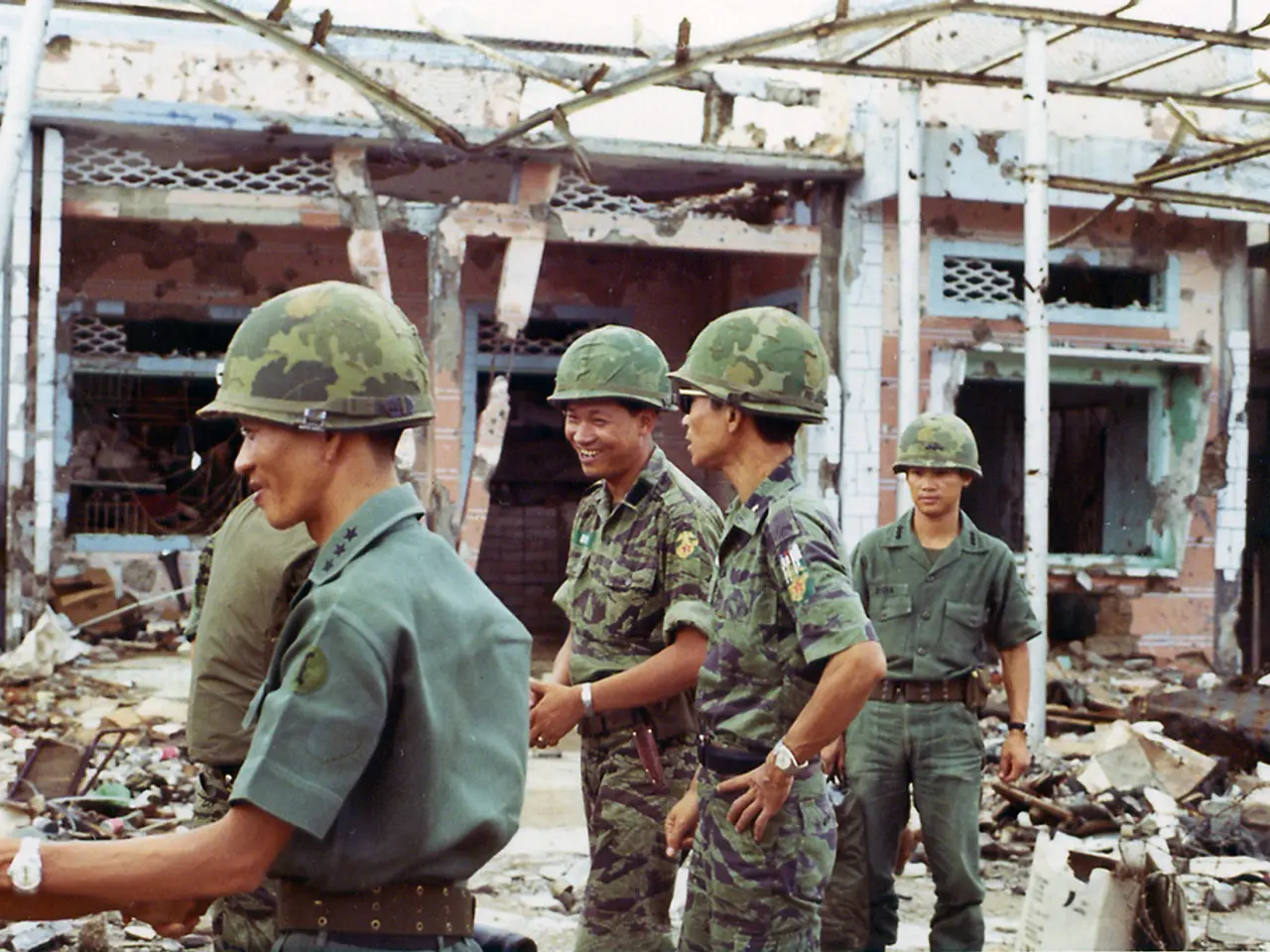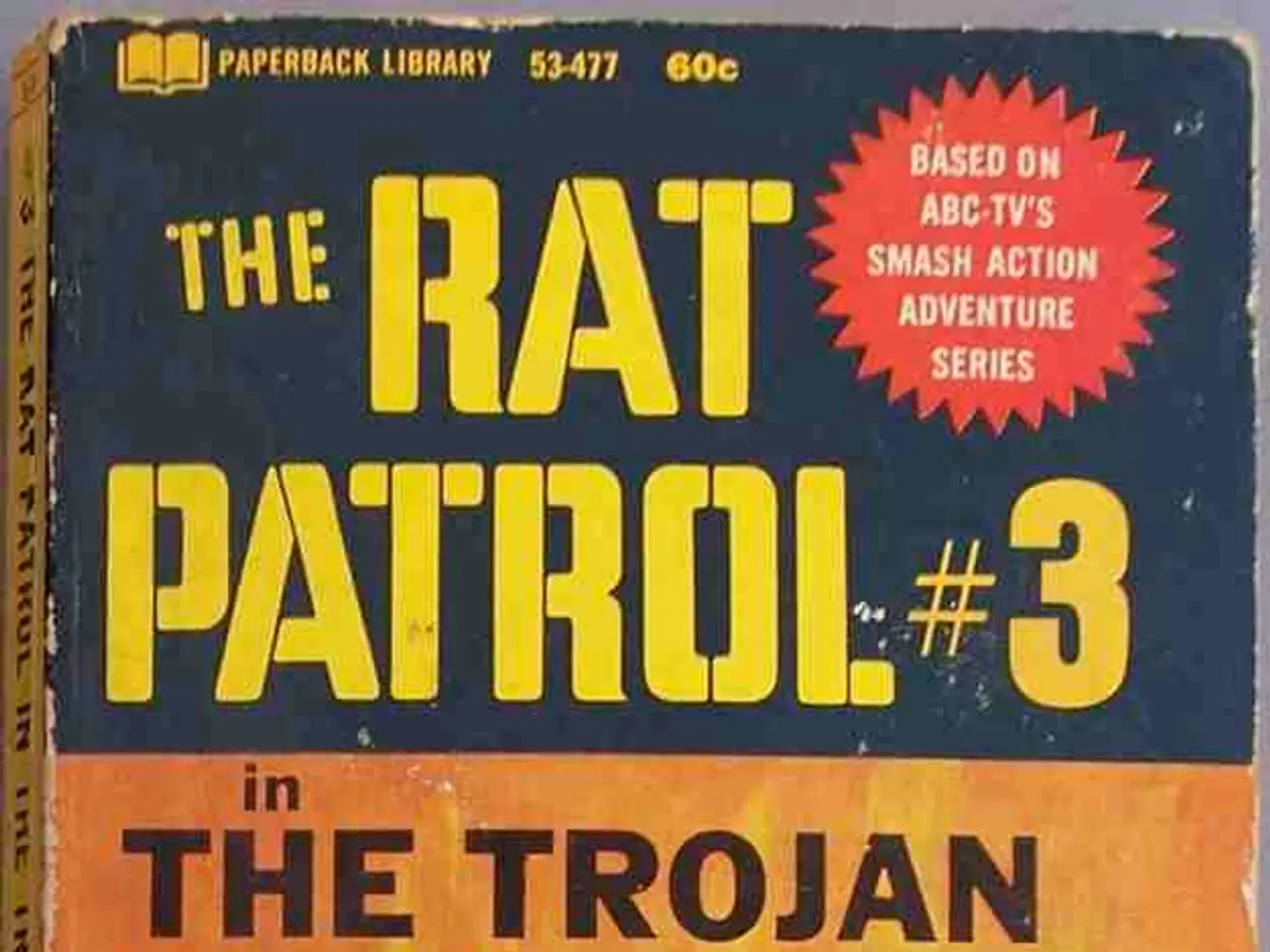Iran allegedly launched a missile equipped with cluster bombs, according to Israel's claims.
In the thick of the 2023-2025 conflict, Iran raised the stakes with a ballistic missile attack laced with cluster munitions, targeting populated areas in Israel. The attack, on June 19, 2025, scatted roughly 20 submunitions, each containing about 2.5 kilograms of explosives, over an area spanning 8 to 16 kilometers in diameter[2][3][5].
Cluster munitions are infamous for their indiscriminate nature, dispensing small bomblets designed to inflict extensive damage on personnel and unarmored vehicles[5]. They scatter over vast areas, ultimately causing harm to both civilians and military personnel. Unfortunately, many of these bomblets fail to detonate on impact—known as "dud rates"—which later become de facto landmines, posing long-term threats to civilians[5].
The missile that struck Israel might have been the Khorramshahr-4, a medium-range ballistic missile that has been featured in Iranian media[2]. The aerial dispersion of cluster submunitions during the terminal stages of ballistic missiles is challenging to intercept due to the scattering of numerous small bomblets at high altitudes (around 7 km)[2].
The use of cluster munitions has disconcerting implications:
- Humanitarian impact: Cluster munitions targeted over civilian areas pose significant risks and concerns due to their indiscriminate nature and the continuing danger that unexploded bomblets can present to civilians, including children, even after hostilities have ceased[3][5].
- Military escalation: The cluster munition deployment has intensified the Israel-Iran conflict, evolving from missile barrages to the use of banned weaponry that escalates area damage and complicates Israel's defense efforts[2][4].
- Legal and ethical concerns: Cluster munitions are prohibited by the 2008 Convention on Cluster Munitions, which forbids their use, transfer, and stockpiling due to unacceptable risks to civilians[3]. Iran and Israel are not parties to this treaty, but the international community's disapproval is likely given the weapon's detrimental impact.
Amid the escalating hostilities, Israel has formally denounced Iran for employing illegal cluster munitions, emphasizing the weapon's potential danger to civilians[3][4]. The deployment of cluster munitions has stirred fierce criticism from human rights organizations and governments alike, as they view it as a breach of international humanitarian norms and a potential war crime due to the indiscriminate harm it inflicts[3][4].
The global community reacts with divided opinions about the Israel-Iran conflict but overwhelmingly condemns cluster munition use due to its long-standing dangers to civilian populations[3]. Anticipate investigations and increased diplomatic pressure on Iran, as part of efforts to de-escalate further tensions and promote adherence to international law[3]. This incident underscores the difficulties in conflict zones where non-signatory states to specific weapon bans nonetheless deploy such munitions, making it complex to enforce international regulations.
- Politics and war-and-conflicts intersected once again as the 2025 Israel-Iran conflict saw a new escalation with Iran's use of cluster munitions, a type of weapon that brings up strong general-news discussions due to its humanitarian impact, military escalation potential, and legal and ethical concerns.
- In the realm of general-news, the deployment of cluster munitions by Iran in its conflict with Israel raised a wave of criticism from human rights organizations and governments, owing to its indiscriminate nature and long-term dangers to civilian populations, thus breaking international humanitarian norms and potentially classifying as a war crime.






